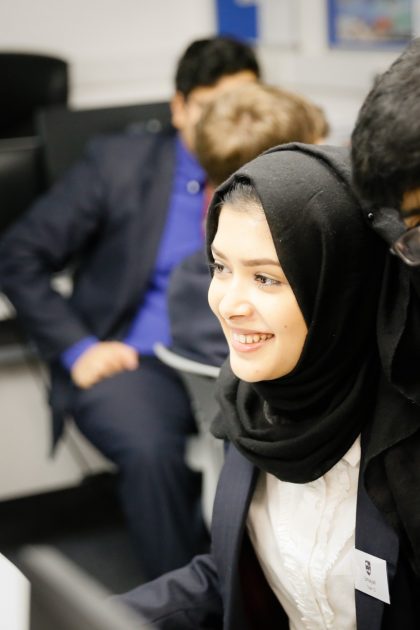Exam season is once again upon us, or perhaps a more accurate way to put it would be ‘revision season’, because our students spend far longer preparing for assessments than sitting them. But never before in the media or Headmasters’ blogs have we seen such a flurry of worry about the ever-increasing pressure on our young people at this time of year. Rarely have so many national column inches been devoted to stress-busting revision advice.
Increased national understanding regarding wellbeing and teenage mental health has intersected with news about increased unnecessary testing of young children, leaked SATs papers, OFQUAL’s inadequate response to legitimate concerns about remarking, spiralling parental expectations (sorry mums and dads, you appear to be taking some heavy criticism at the moment), the vagaries of rushed GCSE, A Level exam reform etc. The list is woefully long.
And so, not surprisingly, we are all really rather concerned about exams and the damaging effect they are having on our children – or so we read.
Clearly, a little bit of stress is a good thing. Our physiology is hardwired such that we perform best when fight or flight chemicals flush through our bloodstream. Manage that stress; accept it as part of the normal human condition when facing a challenge. Channel it and all will be well. But the media continues to report on two recurrent themes: firstly, that exam stress is at an all-time high and secondly that our children are inadequately equipped to deal with it.
At times, I fear that the important subtleties of the teenage mental health narrative are being overlooked as exam fever trumps all as the principle cause of our children’s ills. I’m also concerned that, if only through the volume of attention focused on this currently, we might unwittingly be encouraging an expectation that pupils are, inevitability, going to be dangerously ‘strung out’ at exam revision time – cause and inescapable effect. But this is not a universal truth in my experience.
Fortunately, there has been some good practical advice in amongst the angst. An excellent article in The Guardian, a must for students, parents and teachers, ‘The science of revision: nine ways pupils can revise for exams effectively’ communicated as much common sense as it did science and urged breakfast eating, putting mobile phones away, fresh air and sleep, amongst other things.
Some revision tips keep being repeated in the media and were encouraged recently in assembly at BGS. Broadly speaking, the advice is to start revision early, break sessions and material down into chunks, and take regular, short breaks. Additionally, students should avoid distractions, turn phones and music off, and not rely on reading alone. Revision must be active and characterised principally by testing of memory and the recalling of information. Oh yes, and there should be regular top ups where students revisit things they’ve revised previously.
I remember as a lad revising in my bedroom committing facts to memory by reading revision summaries, then recalling the information aloud from memory, cheerfully talking to the posters on my walls. By the time I’d finished, there was nothing that the members of AC/DC or Iron Maiden didn’t know about the causes of the English Civil War. Writing down scribbled notes, summary diagrams, mind maps and lists from memory, and attempting past papers under timed exam conditions all helped. It worked. It still works.
As a teacher I know that simply reading notes or texts doesn’t suffice, nor does open-book copying of neatly coloured-in revision summaries from an original source. The mind needs to be exercised using memory tests and games and by teaching others what you’ve learned.
And when the big day comes, is it really all that bad? In my final year at school I recall an A Level General Studies exam and one question about flying an aircraft. The paper had a diagram of a cockpit and a detailed description of the controls. Instructions followed about pressing this pedal and pulling that lever, and we had to work out what effect these actions would have on the trajectory and velocity of the plane. I was sat at the back of a large hall and watched 200 plus pupils sitting at their wobbly, square exam tables, hands and feet apart, lurching one way and then the next pretending to fly a fighter jet – priceless!
Perspective can be maintained as exams approach and the pulse quickens. But if all else fails, some school mottos offer useful words of wisdom and you could do a lot worse than follow ours at BGS – ‘Hoc Age’ or ‘get on and do it’.
“Perspective can be maintained as exams approach and the pulse quickens. But if all else fails, some school mottos offer useful words of wisdom and you could do a lot worse than follow ours at BGS – ‘Hoc Age’ or ‘get on and do it’.”
